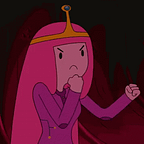Eternity in Death: ‘หิ่งห้อยในสวน’ (Fireflies in The Garden) Book Review
“This summer, I am going to be 23 years old. I decided to kill myself.”
This is the first sentence of ‘Fireflies in the Garden’ by Niwat Puttaprasart. It resembles much of the existentialism quote, “Should I kill myself or have a cup of coffee.”
In this short fiction, the protagonist decided that he wants to suicide himself. I’m not sure what the real intention behind this character is because all the writing is mostly like a diary of him planning and reasoning why he wants to do so — only for the reason that he wants to be immortal.
I would say that it was quite an exciting idea for me back at that time ( I was around 20.) Because our ‘thai’ culture is heavily influenced by Buddhism, we think suicide is a demerit. Even though I am not a religious person, this way of thought still subconsciously lingers on me. Suicide means ‘selfish.’ People who commit suicide are very selfish because they don’t care about their families, their lovers, or their friends.
That was my opinion at that time, but after I read this book, my perception of suicide changed. I understand suicidal people more. I also think that even they did commit suicide. It might also be another way for them to start a revolution against life, against normality. Or even make people realize that there is something wrong in a particular situation.
(Buddhism Fact: there is a Buddhism monk who committed suicide in Buddha’s time. Buddha said it was okay because this specific kind of suicide didn’t violate the Buddha’s teaching.)
The story is realistic enough to convince people that the protagonist might be a real person. Niwat wrote in the editor’s note,
“This is the diary of a guy who committed suicide. His sister gave it to me because she knew that he wanted it to publish.”
This is a brilliant way to use an editor’s note as he is also editor-in-chief of the publishing house.
I once talked with a philosophy professor about what death means. He said,” According to existentialism, we might say that death is the end of being.” For some reason, when the being ends, another being comes, as it might be a universe trying to balance things out.
So when the ‘Fireflies in The Garden’ guy said that death is eternal. It means that death will change him into something else. At the very least, he would be a ghost that haunts his sister’s memories.
Death is eternal when you were at the peak of your life. He gives us an example of Kurt Cobain, Nirvana’s frontman, that committed suicide in 1994. We, the younger generation, still know him as his massive legacy on grunge music.
“For those who’re still alive, their fame became withdrawn, their fame is not immortal.” He said.
Maybe, the suicide is an eternity of his life. Then he killed himself in the story.
